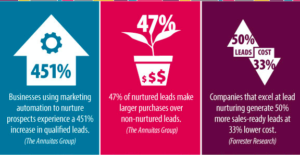Health Tech Marketer Interview with Brian Shilling
An interview with health tech marketer Brian Shilling, Director of Marketing at Clarity Quest Marketing.
- Tell me a little about your role and how you got there.
As the Branding and Digital Marketing Director at Clarity Quest Marketing, I am fortunate to get to play a lot of roles within our dynamic team ranging from high-level marketing strategy to online marketing execution. I started my career in digital marketing (SEO, SEM, content creation) and transitioned to building corporate messaging foundations and assisting with brand development initiatives. I now work primarily as a project manager overseeing branding, messaging, web design, and digital marketing for our clients.
- What kind of clients are you working with?
Our clients are all in the healthcare, technology or biotechnology industries, and most are B2B. We work with all sizes of companies from venture-funded startups to enterprises in health IT, SaaS, medical devices, life sciences, pharmaceuticals, and more. It’s a unique and exciting niche that’s constantly growing and evolving.
- What are the top reasons why your healthcare clients come to you (challenges)?
A majority of our clients come to us because they either don’t have high-level strategic marketing expertise in-house or they have been burned in the past by an agency that didn’t understand the healthcare market. In terms of business challenges, many clients fall into one of two categories:
- They want to get acquired. “How can you increase our valuation and position us for acquisition in 2-3 years?” We get that a lot. Acquisition is often the endgame for health IT companies, and the smart ones realize they can’t do it without marketing. We have helped several companies get successfully acquired as a direct result of our marketing efforts.
- They need qualified leads. This need is consistent across our healthcare, tech and life sciences clients. They all need more of the right leads and more sales to drive their business growth. We’ve developed many strategic lead gen campaigns across verticals, so we know what works and what doesn’t.
- What are the biggest opportunities in health tech marketing you see today? What aren’t people doing, or not doing enough of?
I think there is a tremendous opportunity in marketing automation (MA) that many companies aren’t utilizing. MA allows companies to have best-in-class personalization or account-based marketing without a huge staff. There are so many MA platforms available now that you don’t have to spend a fortune to get all the bells and whistles.
Sales and marketing alignment is critical for success in lead generation and moving prospects through the funnel — and MA is the engine that can bring it all together. Many companies see MA as a box to check off their list; they get a system, load some contacts, and use it for basic email sends — and they don’t get results. The magic of MA is in the sophisticated nurture programs, lead scoring, segmentation, CRM integration, and other capabilities that require expertise to setup and manage.
- How is health tech marketing different than marketing in other verticals?
If you talk to any marketer, they will tell you that their vertical is “hard.” And they’re right. There are inherent challenges when marketing any company, product or service in any vertical to any target audience.
When it comes to health IT, there are a few realities that can make our jobs as marketers a little more challenging:
- Healthcare is volatile. All of the mergers, acquisitions, and consolidations mean your target audience is constantly in flux. The mid-size hospital you’ve spent six months building a relationship with could be snatched up into a regional health system and suddenly your relationship is meaningless. You now have to reach a new decision maker.
- Politics plays a role. Healthcare tech is intertwined with the political landscape. When incentives are high, business is booming. When there’s a shift in policy, regulations change and business slows. Buyers are very sensitive to potential changes and can be hesitant to pull the trigger.
- Budgets are tight. Healthcare budgets are extremely limited with many parties vying for a piece of the pie. You might have the most innovative, transformative product and a great pitch, but lose out on the business because you’re a “nice-to-have.” With so many mission-critical expenses, it can be challenging to break through in healthcare.
- Sales cycles are extremely long. For large tech purchases, it can take 12-36 months from the time of first contact to close a deal. It’s not uncommon for ten or more stakeholders to be in sales meetings.
- What changes do you see coming in the space (machine learning/AI)?
I think health IT will continue to drive the personalization of the healthcare experience. Machine learning and IoT will enable providers to offer patient-centered care, give patients greater control over their medical records and data, put a variety of real-time communication options in the patient’s hand, and make the health delivery experience safer and more efficient for patients, providers, and payers.
- What are the channels where you’re seeing the most ROI?
Our agency has studied this extensively in the past using real client results, and it’s something we continue to gauge to ensure we’re recommending and executing the most effective marketing programs.
- Search Engine Rankings. With some savvy research and upfront work, search engine optimization (SEO) can pay dividends for years to come. Not many agencies know how to do it well, but when executed properly, SEO can still drive tons of traffic to your site. Couple it with personalized content and it’s a very tough channel to beat.
- Marketing Automation. I already talked about MA above, but I can’t stress enough how impactful it can be to your business development and sales efforts. ROI for these systems can look a bit rough in the beginning, as costs to implement the programs can be high, but you will get the return in the long run.
- Account-Based Marketing. If you have clearly defined, high-value target accounts, ABM is a strategy you should try. With ABM, you aim to reach, build relationships, and close deals with your specific target accounts instead of casting a wide net marketing to the universe. Just be careful not to put all your eggs in one basket in case you don’t close the deal. Look at prospects that have both a high potential value and a mid-high conversion opportunity and choose several to target.
- What apps/software/tools can’t you live without?
Calendly for easy appointment scheduling. Act-On for marketing automation. Moz for search engine optimization. And Google Analytics, of course!
- Advice for other health tech marketers?
Never stop learning. Use your knowledge to educate yourself, your employees, your superiors, and your clients. If you have something valuable to share, share it. Marketing in itself is a rapidly evolving industry, but it can’t compare to the changes in health tech. As healthcare marketers, we have a responsibility to keep pace with both worlds.
- What metrics are you keeping your eyes on most on your projects?
ROI has to be top-of-mind in everything you do. All of our campaigns are revenue-focused. If it can’t be tied back to bottom-line growth, then why waste precious marketing dollars? It can be easy to get caught up in impressions, click-thru rates, click to open rates, and other often-reported metrics, but strive to go the extra mile and tie every campaign to ROI. That’s where your clients or bosses will see the value marketing can deliver.




